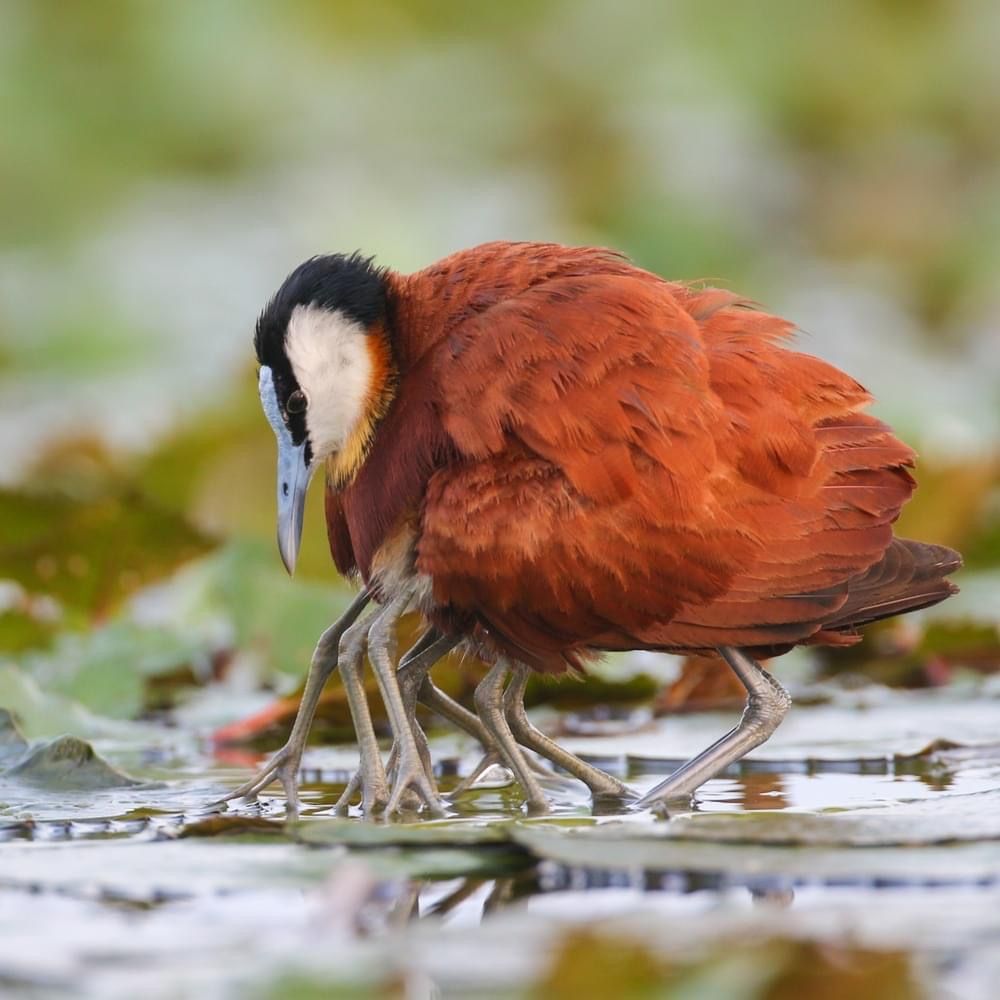Across tropical wetlands, a strange sight greets the eye: delicate birds seemingly striding across floating lily pads, as if defying gravity itself. These are jacanas, sometimes nicknamed “Jesus birds,” and their secret lies in their extraordinary toes. Each slender foot spreads wide like an outstretched fan, with toes so long they can span the width of a hand. This adaptation distributes their weight evenly, allowing jacanas to walk on flimsy vegetation that would sink under almost any other creature.
Males and females share this balancing act, but their lives are even more unusual than their stride. Jacanas are among the few bird species with sex-role reversal: females are larger, more dominant, and fiercely territorial, while males take on the role of caretakers. Once a female lays her eggs on a floating nest, the male assumes full responsibility—incubating them under his wings and later shepherding tiny chicks, which look like balls of fluff on stilts.
Even hatchlings come equipped with outsized toes, comically oversized for their tiny bodies, giving them the same buoyant advantage as their parents. With these tools, they scurry across mats of lotus and hyacinth, darting after insects and seeds, safe from predators lurking in deeper water.
But for all their comical proportions, jacanas are perfectly tuned to their watery worlds. Their long-toed legs are not just oddities; they are lifelines, turning floating plants into pathways and allowing these remarkable birds to literally walk where few others can.
